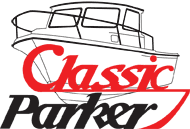were do i get this prop from an get the right hub kit everyone say no stk thanks for ur help
Did you get a new prop? If so, please post the results.

were do i get this prop from an get the right hub kit everyone say no stk thanks for ur help
One thing to keep in mind is that all those displayed mpg numbers are calculated rather than measured, and higher pitch props generally tend to show better mpg numbers (as compared to actual fuel burn rate - empirically calculated to get the real numbers).
Hardly practical to do with different props, but it’s the only way to really know.
How do you know that?Yes...... higher pitched props GENERALLY get better mpg (fuel economy)
Not to be redundant but, since you asked, the point I'm making is - fuel burn rates calculated by the onboard gauge are a theoretical display, based on an algorithm built in an ECU, with proprietary logic. Those calculations maybe generally close to the actual (measured) burn rate. Until you start pushing the system - and then all bets are off.Not sure I'm following your logic or even what you are trying to state.
How do you know that?
Did you measure it, or did you read it off of the command link (as calculated by the ECU)?
--
I appreciate your work and information sharing, it is crazy hard to get these kinds of data in boating.Calculated by the Yamaha Commandlink and calculated by the Raymarine MFD which is connected to the ECU on the motor. Both systems have been field-verified to be 99.x% accurate (based upon multiple fuel tank refills of known volumes vs estimated depletion).
Common-man ...... I'm a numbers guy. Ain't my first rodeo